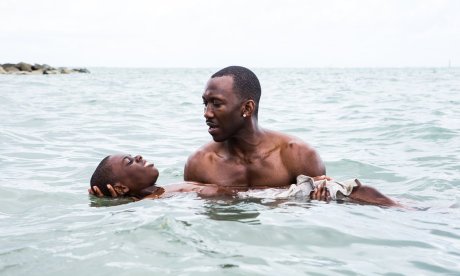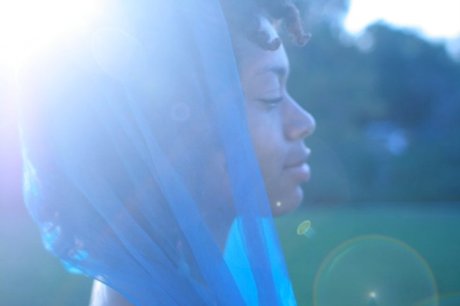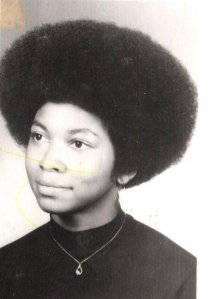 When I was a young girl, a female friend at summer camp asked me if I was gay. I giggled, shyly. I didn’t know how else to respond, but to say no. I had not known myself to be gay. She told me it was “weird” that I didn’t like any of the boys at summer camp. I knew I just didn’t like them. I knew I did like boys, but I hadn’t quite decided if I liked girls as well. I was more interested in going swimming. Her question made me aware of myself in a way I hadn’t been before. I was aware of the ways I’d be seen. I was aware, at the time, that to be a black girl meant liking black boys, and if you didn’t, something might be weird, or wrong.
When I was a young girl, a female friend at summer camp asked me if I was gay. I giggled, shyly. I didn’t know how else to respond, but to say no. I had not known myself to be gay. She told me it was “weird” that I didn’t like any of the boys at summer camp. I knew I just didn’t like them. I knew I did like boys, but I hadn’t quite decided if I liked girls as well. I was more interested in going swimming. Her question made me aware of myself in a way I hadn’t been before. I was aware of the ways I’d be seen. I was aware, at the time, that to be a black girl meant liking black boys, and if you didn’t, something might be weird, or wrong.
Those feelings- of knowing and not knowing, of trying to figure it out, of wanting to exist- washed over me as I watched Barry Jenkins’ film, Moonlight, based on the play by Tarell Alvin McCraney. Told in three chapters, with three actors playing the lead character at different points in his life, the film follows a young man, Chiron, trying to make sense of his identity and sexuality while growing up in inner city Miami, a place where palm trees, rolling tides, and sleek low-riders form a melange of texture.
In one scene, Juan (a stellar Mahershala Ali), a neighborhood drug dealer, teaches young Chiron how to swim. Water envelops the lens and these two men transcend any prior label placed upon them. They are free, floating in a body of water where man-made stigma and hatred have no place. This, in Barry’s words, is a baptism. A washing, a renewal.
But the freedom of the water cannot penetrate the hard codes of manhood that little boys act out to assert themselves, some of them done in fun, while others are done to harm. What are the boundaries to being a man, and being a black man? When is one’s particular manhood not allowed? In one scene, little black boys wrestle and roll over each other in laughter, but Chiron is targeted for not being “hard.” What makes one hard?
In the absence of a stable parent, Chiron finds space and nourishment in the home of Juan and his girlfriend Teresa (Janelle Monae), while his mother, played with a tragic intensity by Naomie Harris, sinks deeper into an addiction to crack cocaine. Under a magenta light, she screams at young Chiron, her eyes bulging, and body wrecked by the drug. But in so many scenes, there’s still a deep, warring affection in her eyes, for him. There’s a battle inside of her- the battle against an addiction and the love for a son.
I was struck by the seamlessness in mannerisms and demeanor that each actor portraying Chiron, shared. The teenage Chiron, played by Ashton Sanders, carries the quiet rage of Alex Hibbert in his eyes and in his body. He moves like someone keenly aware that they are being watched, and targeted. He is not one with himself, because he cannot be and it pained me to see this. It pained me to see a scene in which a fellow classmate taunted Chiron as he walked home. It pained me to feel the confusion and danger he felt while hiding out in a gated staircase at school to avoid further harm. It pains me that anyone would not see this film because it’s about a black person wanting to be free.

In a later scene, Chiron sits on the beach with teenage friend Kevin, and sand between his fingers. Smiles force their way through, and a calm comes over. Like his swimming lesson with Juan, there is no judgement in the water, and in the wind. These are freeing forces that cover all, that submerge all. I’ve always felt most free in water. In a pool, even before I knew how to swim. And when I did, I threw myself into oceans that could so easily push me back out.
When we meet older Chiron (Trevante Rhodes) in the latter portion of the film, he’s buffer, with a gold grill, riding in a similar car to the one Juan drove. His muscular body is a type of armor, his eyes pulsing with the same intensity, while his words are still few. A meeting with an older Kevin (Andre Holland) brings back both old wounds, and the ability to be free once more- to taste it (literally, as they meet in a diner), to think about, to stare at the water. I felt the intimacy and vulnerability between these two black men in my own body. There was something in their eyes, something that was crushed in their youth, but now, the tide washed over, and it’s time to start again.









